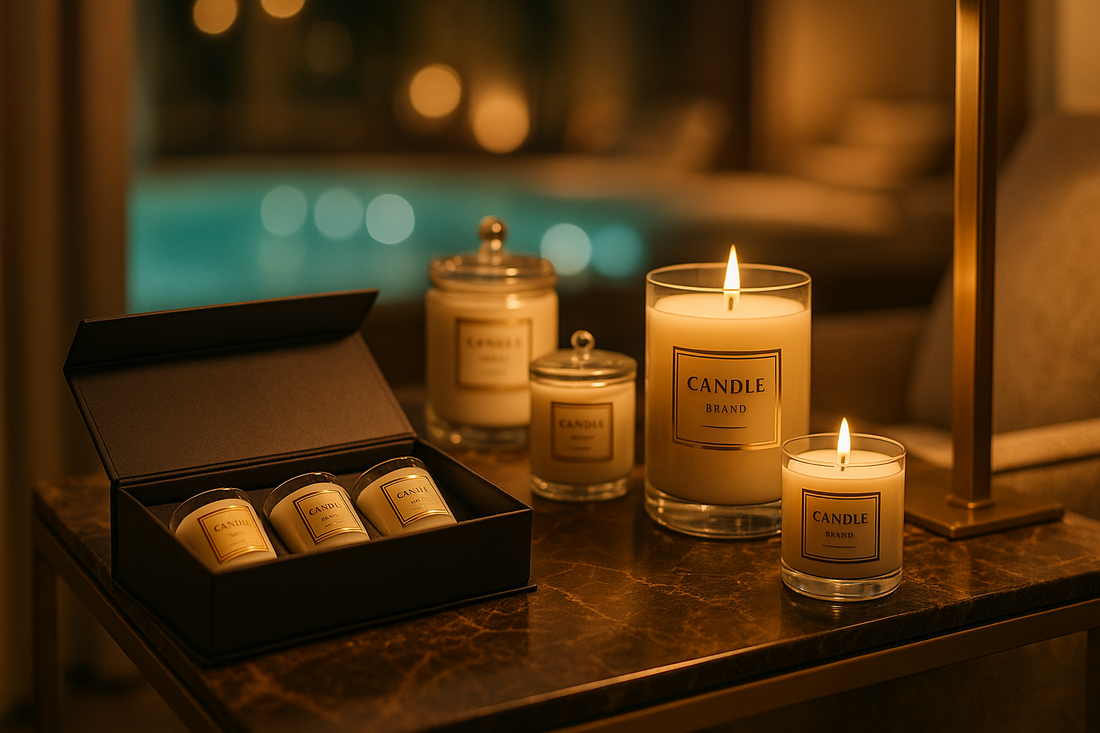
A Guide to Buying Candles in Bulk: What Retailers and Brands Should Know
In recent years, the scented candle market has evolved far beyond seasonal gifts and home décor. As consumer interest in wellness, personalization, and sustainable living grows, candles have become a staple in retail stores, spas, hotels, subscription boxes, and even corporate gifting programs. For businesses looking to expand their product range or elevate their brand experience, buying candles in bulk may be one of the most practical and profitable strategies. But bulk candle sourcing contains more complexity than it appears at first glance.
1. When Should You Consider Buying Candles in Bulk?
Not every business needs bulk inventory—but in many cases, it makes strategic sense. Common scenarios include:
- Launching a private-label product line
- Sourcing client gifts or event giveaways
- Designing scent-branded experiences for hospitality environments
- Stocking multiple stores or e-commerce channels
- Preparing for high-demand seasons
Buying in bulk often leads to economies of scale, allowing smaller businesses to access premium-quality goods at wholesale prices.
2. What to Look for in a Bulk Candle Supplier
Before placing a larger purchase, it helps to have a clear checklist. Ideal suppliers will offer:
- Consistent product quality across batches
- Flexible minimum order quantities (MOQs)
- Private labeling or branding options
- Certified non-toxic ingredients
- Transparent lead times and responsive communication
Some experienced manufacturers also provide free samples or scent kits to help clients make informed decisions.
3. Current Trends in Bulk Candle Purchasing
Understanding the broader market can help businesses make smarter inventory decisions. Here are a few trends shaping bulk candle suppliers and buyers in 2025:
- Sustainability-first: Recycled packaging, plant-based waxes, and refill programs are increasingly expected—not optional.
- Minimalist branding: Custom label requests are often trending toward neutral aesthetics with high-end, apothecary-inspired designs.
- Low MOQ custom orders: Many newer suppliers are adapting to boutique brands by offering personalization at smaller scales.
- Gifts with scent experiences: Businesses use custom candles not just for resale, but to tell stories—at events, in hospitality, or even high-end product unboxing.
4. Common Mistakes to Avoid When Buying in Bulk
Avoid these pitfalls when sourcing large quantities of candles:
- Choosing based on price alone: Low cost might mean synthetic fragrances, inconsistent burn times, or packaging that damages in transit.
- Skipping testing: Always ask for samples first. What looks good online might smell overpowering (or underwhelming) in real life.
- Not planning for seasonality: Lead times during Q4 or holiday surges can stretch to 3–4 weeks. Forecast early.
- Overlooking shipping costs: Especially for international orders, candles can be heavy and fragile—logistics matter.
5. Where Businesses Source Bulk Candles Today
Bulk candles are typically sourced through:
- Direct manufacturers (often offer competitive pricing + customization)
- Wholesale platforms (easier access but limited in personal branding or control)
- Craft or boutique suppliers (focused on scaled-up artisanal products)
-
Private-label specialists, such as brands that work exclusively with B2B clients to produce branded or bespoke collections
One example includes suppliers with customizable scent libraries, white-label options, and low-unit minimums—features increasingly popular with startups and small retailers.
Final Thoughts
Whether you're stocking shelves, preparing luxury giveaways, or building your first home fragrance collection, understanding how to buy candles in bulk is essential. It’s not just about quantity—it’s about quality, brand fit, and long-term relationships with vendors who understand your vision.
For many businesses, candles aren’t just products—they’re part of the atmosphere they sell. Choosing the right supplier, therefore, isn’t a procurement decision—it’s a brand decision.
